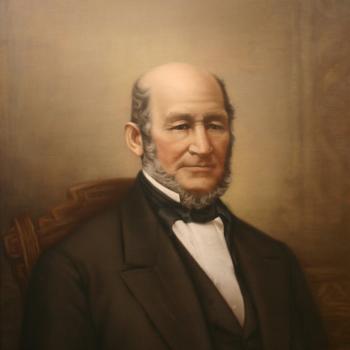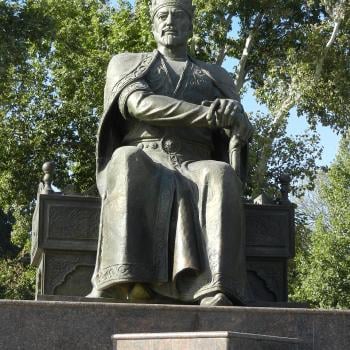
I’ve had a number of face to face encounters with John Dehlin. All of them, I believe, have been pleasant and civil enough. Obviously, he and I disagree very fundamentally on a number of fundamentally important things, and he’s made a number of online statements about me, personally, that I regard as either untrue, unjust, or some combination of the two. On the whole, though, I don’t think about him much. I’ve had little to say about him over the years, and I don’t follow what he’s doing.
It’s been impossible to miss the fact, though, that, over the past day or two, he and his followers have been harshly attacking Scott Gordon, the president of FairMormon, for remarks that Scott delivered back in June over in Sweden.
Now, I’ve known Scott for many years, and I like him a lot. He’s a very nice, mild-mannered guy. (So is his brother, a BYU law professor and administrator who lives in my ward.) And it so happens that I was in the audience there in Kungsbacka, Sweden, near Göteborg, when Scott spoke. I heard his talk, and, unless my memory misleads me very much, it wasn’t anything remotely like the frothing, slanderous hatefest that some seem to imagine it was. Moreover — I’ll have to listen to the posted video of the presentation to be certain — I don’t recall John Dehlin being a primary focus or target of Scott’s remarks, let alone the object of a “smear.” (Some discussion drew upon his case, but I don’t think, though I could be wrong, that he was ever even named.)
A principal object of Dehlin’s complaint is that Scott described him as not believing in God, and that that’s a lie.
I wonder why, if he really does believe in God, he seems unable to realize — or unwilling to grant — that someone’s saying that he doesn’t might simply be a mistake.
That would seem to me to be the charitable reaction. (It must be said, though, that the comments following Dehlin’s complaint don’t seem to show much charity for Scott Gordon. As very often happens, some of the critics engage in off-the-charts nastiness while in the very act of complaining about supposed nastiness on the part of Mormon apologists.)
But it also seems to me that Scott might be pardoned for thinking that Dehlin doesn’t believe in God.
For example, on one excruciatingly hostile, vitriolic, and mostly atheist ex-Mormon message board — to which, as a matter of settled personal policy, I won’t supply a link here, since I consider it a disgusting cesspool of personal viciousness and since, continuously for many years now, it’s been a place where I’ve been personally misrepresented, mocked, slandered, and abused — an anonymous poster who claims to have been centrally involved in Dehlin’s “Mormon Stories” organization for a number of years alleges that, whatever Dehlin’s public statements might have been, she knows him to have been an atheist during the time she worked with him. He is, she says, dishonest and manipulative.
(If anybody really needs to have a link to her comments, I suppose I could supply it in response to a personal request by email. But I won’t give the message board where she’s posting any publicity on my blog.)
Now, I don’t know who she is, nor whether her claims are credible. Pseudonymity makes judging such things difficult or impossible, and, as I say, that particular message board thrives on personal attacks that, in my case at least, can’t be trusted to rest even slightly on truth. But I will say that, although I recognize that Dehlin’s viewpoint has fluctuated over the years, and although I regard him as a distinctly careless and often inconsistent thinker, my own impression is that, at various points, he has at least leaned toward atheism. (For one piece of support for that impression, though I formed my view earlier and independently, I suggest a look at page 39 of Gregory L. Smith’s “Dubious ‘Mormon’ Stories: A Twenty-First Century Construction of Exit Narratives,” which can be found here. [For background on Dr. Smith’s “Dubious ‘Mormon’ Stories,” which provoked a great deal of controversy before it was actually published, see his “Return of the Unread Review: A Mormon Story.”])
So, if Scott Gordon is wrong on this point, he doesn’t seem far wrong. Neither does he appear to be maliciously wrong. And, accordingly, the charge of a “smear” seems quite overwrought.
















